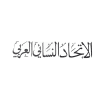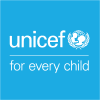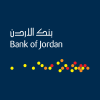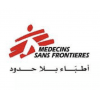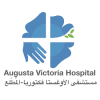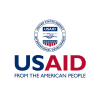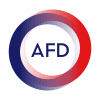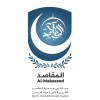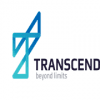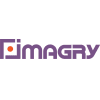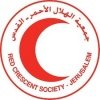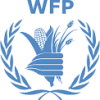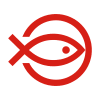Expression of Interest Effective Management of Irrigation W...
I: Project Overview
Introduction:
CNFA is an international agricultural development organization that specializes in the design and implementation of sustainable, enterprise-based agricultural initiatives. CNFA implements the Effective Management of Irrigation Water Activity (EMIW) in West Bank and Gaza, a USAID-funded Project with the objective to improve climate-resilient conservation and management of freshwater resources and associated ecosystems. EMIW is a four-year USAID-funded initiative. Its main purpose is to reduce the non-beneficial water use in irrigation and reduce the use of fertilizers and other chemicals through improved agricultural practices. This will, in turn, improve the quantity and quality of available fresh groundwater resources. EMIW will enable farmers to adopt new technologies and improve their agriculture practices to reduce non-beneficial water use in irrigation, reduce, and optimize the use of fertilizers and other agrochemicals and improve the sustainability of water resources.
The Activity's intermediate results and sub-intermediate results are as follows:IR 1:
Improved efficiency of water use for irrigation.
Under IR 1, the Effective Management of Irrigation Water Activity will reduce non-beneficial water consumption. To achieve this objective, the Activity will implement a farmer mapping, targeted farmer outreach, a grants fund, and targeted procurements for irrigation systems with farmer co-investments, installation, and follow-up. Training and awareness raising under Component Two will help farmers appropriately use technology and adopt climate-smart practices to increase productivity and save water while reducing production costs. This IR has two sub-intermediate results:• Sub-IR1.1:
Reduced water consumption for agriculture.
• Sub-IR1.2: Reduced energy consumption for agriculture.
IR 2: Improved adaptation and resilience to climate change.
Under IR 2, the Effective Management of Irrigation Water Activity will provide farmers with training, capacity building, extension, and awareness-raising to enable them to better adapt to climate change and manage and repair the irrigation systems provided in Component One. The Activity will also support these farmers by developing and strengthening WUAs (Water User Associations) and cooperatives to support increased productivity and improved water management. This IR has two sub-intermediate results:• Sub-IR2.1:
Reduced quantity of chemical fertilizers.
• Sub-IR2.2: Improved farmer use of climate-smart agriculture.
The Effective Management of Irrigation Water Activity will work with farmers in the West Bank and Gaza (WBG) to improve agricultural practices using the power of science and technology. For now, activities in Gaza are on hold due to the war. This will reduce the amount of water used for irrigation and limit the use of inputs (fertilizers and pesticides). The Activity aims to improve the management of water resources by increasing the availability, quality, and environmental resilience of drinking water supply sources. In addition, shifting to a modern water conservation irrigation scheme reduces reliance on fossil fuels and protects the limited water resources from contamination. These are all effective measures for combating climate change and building climate-resilient Palestinian communities.
II: Scope of Work/Objectives:
EMIW aims to identify local non-governmental organizations (NGOs)s to support the implementation of the EMIW project with expertise in implementing agricultural and irrigation projects in West Bank and Gaza. The project will be managed directly by CNFA who will have West Bank based office with around 25 team members and will have irrigation, water, capacity building, grants, and (monitoring, evaluation, and learning) MEL Specialist that will provide support and guidance to the implementation of activities. The Gaza office will open when the security situation stabilizes.
2.2 NGOs Implementation Approaches: The NGOs role for EMIW project involves the following components:Component I:
Improve the Efficiency of Water Use for Irrigation Change
1. Facilitates the enrollment of farmers, cooperatives, and WUAs in the Co-Investment Fund that will provide irrigation equipment and solutions for farmers including their co-investment. The technologies covered by the project will include:
a. Smart irrigation system (i.e., sensors, smart meters, low flow emitters, electro-magnetic ionization, rehabilitation of ground wells)
b. Desalination of water
c. Aquaponics, hydroponics, and rainwater harvesting
d. Reuse of treated wastewater
2. After initial installation of irrigation equipment, provide ongoing technical support for users on the operation and the basic practical aspects regarding installation, management, and maintenance of smart irrigation system provided by the project that can include:
• Training on using sensors for data collection and control. Integrating GPS and GIS for precision farming.
• Water quality management: addressing water contamination, salinity, minerals and PH.
• Follow up the distribution and installation of new and upgrades existing irrigation systems.
3. Conduct a qualitative/ quantitative assessment, technical design, bill of quantities for Jericho water ring project, water carriers, balancing ponds, rainwater harvesting cisterns/ponds and ground water wells that the project will support and upgrade in coordination with EMIW technical team and in line with EWIW interventions and objectives.
4. Facilitate farmers' investment in improved technologies, connecting farmers with commercial banks and lending institutions.
5. Manage a transparent and systematic farmers' contributions for the technical irrigation support the project will provide in line with USAID and CNFA regulations and instructions.
Adapting and Building Resilience to Climate Change
1. Provide farmers, WUAs (Water User Associations), and cooperatives with training, extension, and awareness-raising to help farmers to mitigate and adapt to climate change risks, manage and repair the irrigation systems that have been provided to support increased productivity and improved water management. Training topics can include:
A. The optimal usage of chemical fertilizer and pesticides and reduce the quantity used per hectare, proper pesticides use and application, promote the adoption of organic and environmentally friendly fertilizers. A
B. Crops irrigation, networks and irrigations patterns including the reuse of TWW. Good agricultural practices and smart water management based on robust water accounting and productivity systems.
C. Water quality management addressing water contamination, salinity and PH.d.
Climate change adaptation in agriculture; understanding climate change impact, and local trends.
E. Risk management strategies for mitigating climate-related risks.
The Optional Protocol to the Statute Weather stations: adjusting irrigation practices for changing weather patterns.
G. Sustainable resource use; sustainable use of soil, water and energy
H. Knowledge of laws and regulations related to water, agriculture and environment.
I. Edwards Environmental sustainability and conservation: safe use of pesticides and fertilizers.
Inc. Waste management: safe and proper disposal of agricultural waste and byproducts.
K. Sustainable resource use: sustainable use of soil, water, and energy
Inc. Financial literacy, especially targeting women farmers.
2. Conduct farmers' visits and field days to demonstration plots and model farms to encourage adoption of new technologies available under Component One.
3. Build the capacity of the WUAs and Farmers Cooperatives to better serve their members and improve water use efficiency and contribute to adapting and building resilience to climate change. The effort will focus on organizational and financial management, irrigation system management, facilitating economies of scale for equipment purchases, the economic feasibility of the new technology, high economic rate of return (ERR), gender and social inclusion (women empowerment, enhance leadership, and financial literacy training). Capacity building should engage youth and people with disabilities in the process.
4. Develop user-friendly manuals for irrigation and fertilization of different crops, based on irrigation technology used. The purpose of the manual is to serve as a reference guide for producers regarding the irrigation protocol for each crop.
It could include: - Irrigation water conservation, utilization, water management: efficient irrigation water use, scheduling, and monitoring.
Water quality management: addressing water contamination, salinity, and pH
Smart irrigation and agriculture systems including sensor technology: training on using sensors for data collection and control. Integrating GPS and GIS for precision farming.
Automation: implementing automated irrigation and farming systems.
Data analytics: analyzing data to optimize irrigation.
Remote monitoring: managing farms and irrigation remotely.
Good Agricultural Practices (GAP) that are in line with smart water management and productivity systems.
Cross cutting tasks:
1. Monitoring, Evaluation, Reporting and Learning:
The proposed MEL system for EMIW will involve the execution of the AMELP plan, guided by the MEL Implementation Guide, which delineates roles, responsibilities, surveys, and data collection tools. The partner NGOs will utilize a number of monitoring tools devised by the CNFA team that will involve quantitative and qualitative data. The NGOs role for EMIW project involves the following tasks:
• Facilitate access to fields and arranging needed interview.
• Follow up on the filling of semiannual farmers' surveys.
• Support the quality of reported results through follow-up and farmers' training (record keeping).
• Implement training pre/post surveys.
• Collect data about participation and help ensure the quality of training.
• Collet baseline data for farmers engaged in investment activities, adhering to CNFA templates, facilitating engagement, and field access to provide quality and sustainability checks, obtaining GIS data for targeted locations.
• Implement a semiannual technical survey with a sample of farmers to validate savings in water and energy use.
• Monitor the sustainability of implemented activities.
• Facilitate access of missions, donors, consultants, third party monitoring agencies, and project stakeholders to project sites and beneficiaries.
• Support CNFA in completing field forms, conducting focus groups, and conducting quality checks per CNFA templates.
• Assist in providing access to the field and beneficiaries, and accompany CNFA to the field visits as required.
• Conduct focus groups as required by CNFA.
• Submit activity reports, monthly, quarterly, and annually.
2. Other Duties:
• The NGOs will facilitate and coordinate EMIW's meetings, pre-grants activities, data collection and other events with farmers, WUAs, farmers' cooperatives and other stakeholders. The NGOs will hire field coordinator(s) who resides in the target area(s) to support the above tasks.
• The NGOs will provide regular reports to CNFA / EMIW project management team. Additionally, the NGOs will engage in open communication and collaboration with relevant stakeholders, including government agencies, local communities, and other implementing partners.
• The NGO's involvement in the EMIW project will align with the overall project timeline, contributing to the successful achievement of objectives within the four-year period.
• This Scope of Work is subject to periodic review and modification in collaboration with the EMIW project management team to ensure alignment with project goals and evolving needs
III: Qualifications:
The NGO must have the knowledge and past experience in conducting similar activities for development agriculture programs.
1. Valid registration in West Bank and Gaza.
2. Experience and knowledge of the Palestinian development sector.
3. Strong expertise in implementing similar agricultural/irrigation projects, preferably with USAID.
4. A track record of successfully implementing projects, encompassing both recently completed initiatives and those currently active.
5. Knowledgeable key personnel, including board of directors and executive directors, underscoring their relevance to the proposed project.
6. Capacity to reach targeted beneficiaries of famers and cooperatives.
7. Ability to implement sound data collection plans, encompassing surveys, interviews, focus groups, field record maintenance, feedback collection, and comprehensive reporting to donors.
8. Robust quality control mechanisms, emphasizing sound project implementation and meaningful engagement with beneficiaries, particularly females, youth, and people with disabilities.
9. Strong safeguarding and ethical considerations, assuring confidentiality, informed consent, prevention of abuse and bribes, conflict of interest management, and adherence to ethical guidelines.
10. Strong recruitment plan for key positions needed for the project, detailing positions needed and their level of effort for this project.
11. Effective communication strategies, including regular updates to the CNFA team on field activities and prompt resolution of emerging issues.
12. Strong community engagement and communication strategy with local stakeholders, ensuring a professional and coordinated approach with farmers and other data providers.
13. Sound risk management plans associated with ability to identify risks and propose strategies and mitigation plans needed to ensure the seamless execution of the project.
14. Robust organizational and financial management.
IV: Submission
Submission of this expression of interest should be completed with all components outlined below in the Expression of Interest form, and submitted to Ms. Noni Alexander [email protected] by Thursday, January 18 2024, 12:00 PM Ramallah time with "EMIW Implementation Partner [Applicant Name]" in the subject line. Requests of interest received after this deadline will not be considered.
Submission Instructions
Submissions will be accepted in the following language(s): English
A complete Expression of Interest must include the following documents:
a. Completed Template showing the component/s the NGO can implement.
b. Signed Cover Letter.
C. Copy of the NGO's business license.
d. NGO organizational structure.
E. Past experience with focus on related activities.




